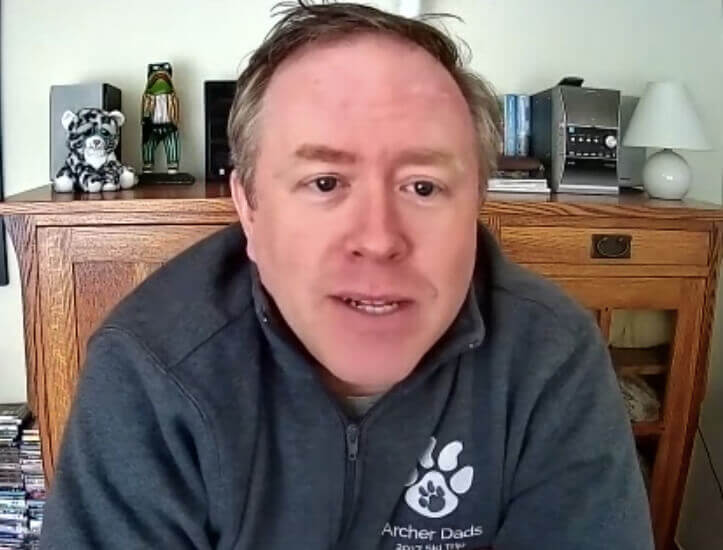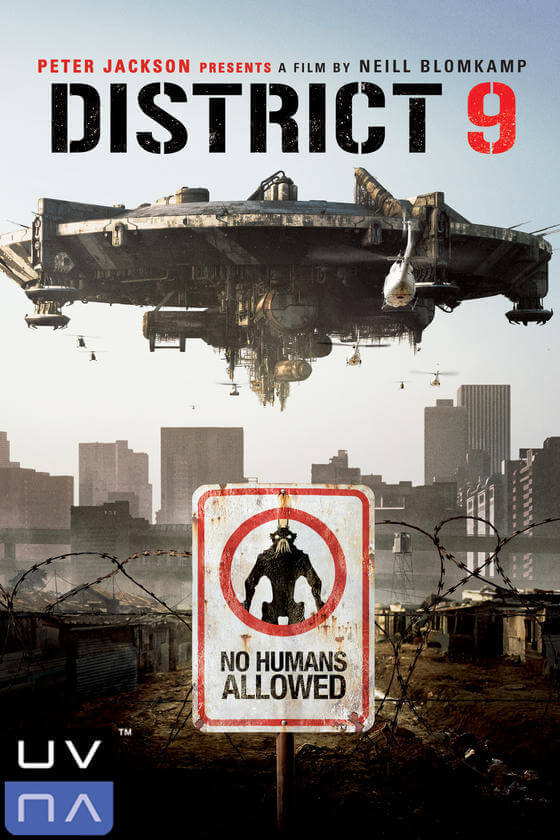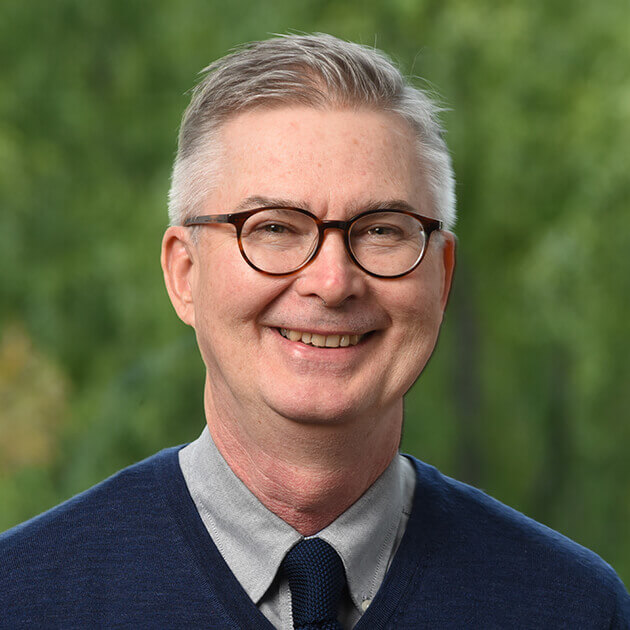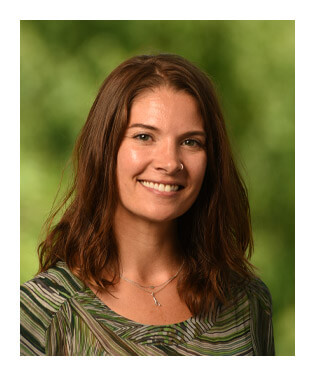News
Producer Paul Hanson Discusses “District 9”
Paul Hanson, one of the producers of the highly regarded 2009 sci-fi movie District 9, joined John Rearick’s Grade 10 English class on the first day back to school, January 19, for a Q&A via Zoom. While some students were in person in the classroom, others attended remotely, and Hanson joined them from California via Zoom.

Rearick’s students read Franz Kafka’s novella The Metamorphosis in December. “In that work, a young man is transformed overnight into a giant bug,” said Rearick, “and needless to say, people suddenly treat him very differently. In class, we discussed many aspects of the story, including its science fiction aspects and what it says about our views of ourselves. But we often came back to the issue of how we treat people who are different from us; the tale seems to be a pretty clear allegory about how we value or devalue others.”
Rearick asked the students to watch District 9. “It addresses many of the same issues in a 21st-century context,” Rearick said. “The film is powerful science fiction, but it is also about how we treat all types of ‘aliens,’ and develops student empathy by asking how we might feel if we ever became an outcast.”


Rearick explained that District 9 is set in a post-apartheid South Africa. “Shadows of the evils of racial discrimination are intentionally everywhere in the film,” Rearick said. “It’s very meaningful that students will discuss the film after attending today’s MLK assembly; they will have a chance to see how art exposes some of the terrible social ills that Dr. King fought against.”
Rearick welcomed Hanson and introduced him to Grade 10 English class. Hanson said he grew up in the Midwest and worked in finance in New York before moving to L.A. more than 20 years ago and getting involved in filmmaking.
Hanson described how the District 9 creative team, including producer Peter Jackson and director Neill Blomkamp, “looked for the right balance between a strong social message and still delivering a fun, thrill ride.”
Filmmaker-Student Q&A

Ben Suler ’23 asked Hanson if he were to make a sequel to District 9, what kind would it be. Hanson thanked Ben for the interesting question. He said a sequel might deal with whether the aliens find a path home and what happens when they get home. Do the aliens “deliver a comeuppance” on the earthlings who treated them badly?

“How did people on set interact with the aliens” who were not really there, asked Atiya Pope ’23. Hanson agreed that it was a challenge and explained that some “humans with gray suits with balls attached” in the background stood in for the aliens.
Hanson explained that part of the film was actually shot in Johannesburg after the end of apartheid. “Neill [Blomkamp] is South African by birth,” he said, “and grew up there when apartheid was still in effect.” So shooting there was important to him. The creative team wanted to support “Neill’s vision” with the subtext of making people more aware, Hanson said, noting the “dynamics between the humans and aliens” in the film “parallel Blacks and whites” in South Africa. Hanson added that the “South Africans were blown away” because a Johannesburg township is not usually a setting portrayed in film, especially a sci-fi film.

Kai Otani-Hudes ’23 asked if the film was based on real political events. Hanson said it was not, but added, “Unfortunately, there have been many instances of a dynamic like this in history.”

In response to Katie Lopez’s ’23 question about using sci-fi more to promote social justice, Hanson said that sci-fi is “not grounded in reality,” but is used as a “storytelling mechanism” and could be used more. He said the “concept of an alien or the other” is very relevant. More often, Hanson said, sci-fi has the social message of environmentalism, “what humans have done to the earth.” He added that this instinct to “mistreat the other” keeps on happening in history. He brought up the example of “how immigrants have been treated over the past four years.”
“Don’t underestimate the time it takes to get very good. Learn a discipline. Develop a skill set. People underestimate how hard it is to make something good.”
When Rearick asked Hanson to share advice for any aspiring filmmakers, Hanson said, “Really dig into the aspects you are most passionate about.” He added “Don’t underestimate the time it takes to get very good. Learn a discipline. Develop a skill set. People underestimate how hard it is to make something good.”
Afterward, Ben Suler said, “I think I was most surprised about how smooth Paul Hanson said the filmmaking went, I would think a movie of that production would have a few trouble shooting problems.” About District 9, Suler added, “It’s very relevant since it shows how many people can ostracize and treat people or aliens in this matter so harshly simply because of how they look and the assumption they bring. Something Paul Hanson said that stuck with me was that it’s not always a home run, you just got to keep working and going and it’s very rare to get opportunities like this so make the most of it.”

Alida Lissak ’23 said she was surprised that so much of the footage they filmed did not make it into the movie. “I thought that almost everything that was filmed for a movie was put into the end product.” She added, “District 9 uses aliens as ‘the other’ and shows how people like to group themselves as us and them to feel like they belong and then to oppress the ‘them’.”
“I hope that Paul’s visit… illuminated the ways in which film is used to bring greater awareness of important historical and social issues to the forefront of popular culture.”

Upper School Head Sarah Bates, who has lived and worked in South Africa, said, “It was a wonderful opportunity for our 10th grade students to meet and speak with Paul. For those of us who study South African history, District 9 serves as an important allegory for apartheid, particularly District 6 in Cape Town. It also offers rich discussion regarding the ‘white savior complex’ and the role that the main character has in the anti-colonial movement. Not only did our students get to experience discussions with the producer about the content and themes of the film itself, they also got a glimpse into the inner workings of a Hollywood production. I hope that Paul’s visit inspired budding filmmakers in our presence and illuminated the ways in which film is used to bring greater awareness of important historical and social issues to the forefront of popular culture.”



